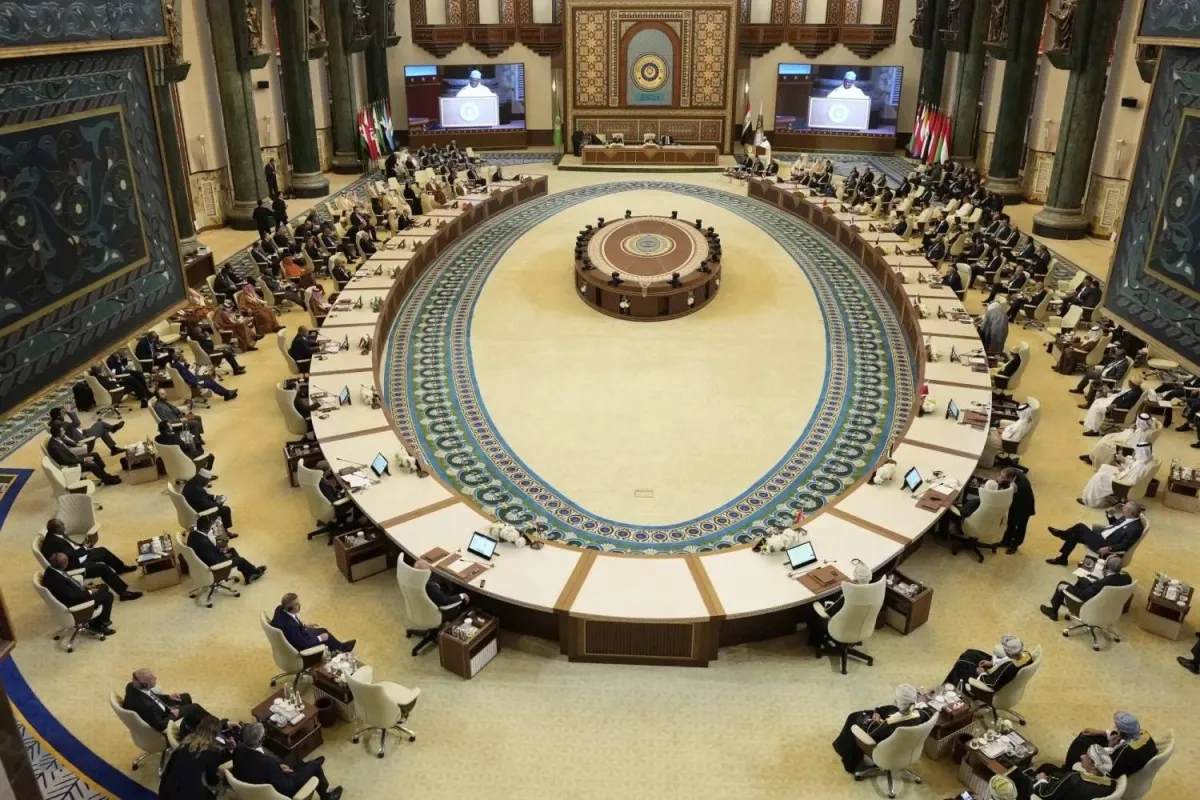Baghdad Summit Highlights Threat of Parallel Entities in Yemen Sudan

The Arab League summit in Baghdad on Saturday saw urgent calls for unified action against the rise of “parallel entities” that undermine state authority, with Yemen and Sudan presented as key examples of nations destabilized by armed groups and political fragmentation.
In Yemen, the continued intransigence of the Iran-backed Houthi militias was a central theme. Dr. Rashad Al-Alimi, chairman of Yemen’s Presidential Leadership Council, urged Arab leaders to take decisive steps to confront what he described as the Houthis’ “defiance,” calling for the full implementation of a resolution classifying the, as a foreign terrorist organization.
Al-Alimi accused the Houthis of a wide range of abuses, including attacks on ports and airports, destruction of homes and mosques, looting humanitarian aid, kidnapping aid workers, and recruiting child soldiers.
Their actions not only threaten Yemen’s sovereignty, but also regional stability, especially through their ongoing disruption of Red Sea shipping routes, he warned.
Alimi expressed his gratitude to the Arab coalition, led by Saudi Arabia and the United Arab Emirates, crediting it for the “historic perseverance of our great Yemeni people.”
He also credited the coalition with easing the suffering of the people and maintaining the unity of Yemen’s national institutions.
UN Secretary-General Antonio Guterres, also present at the summit, described the Red Sea attacks as a threat to the global economy and called for renewed efforts toward an intra-Yemeni dialogue to restore peace.
Sudan’s crisis was similarly framed as a warning against the dangers of competing power centers. Egyptian President Abdel Fattah al-Sisi rejected any attempt to establish alternative governments in Sudan, stressing the urgent need for a ceasefire and the protection of the country’s territorial integrity.
“Sudan is at a critical juncture that threatens its unity,” he said, urging immediate humanitarian access and support for state institutions.
Sudan’s Deputy Sovereign Council leader Lt. Gen. Ibrahim Jaber blamed the Rapid Support Forces (RSF) for undermining national stability.
He backed calls for a ceasefire that includes a full RSF withdrawal and pushed for a comprehensive Sudanese dialogue to prepare for elections.
Jaber also appealed to Arab nations for help in rebuilding the war-ravaged country.
The human and economic toll of Sudan’s ongoing war is staggering. The World Health Organization has reported over 20,000 confirmed deaths since fighting erupted in April 2023, while independent estimates suggest the number may exceed 150,000, including victims of famine and disease.
Infrastructure damage, including to bridges, hospitals, and power grids, is estimated to have cost the country between $120 and $150 billion.
aawsat.com